Best Go Programming Guides to Buy in February 2026
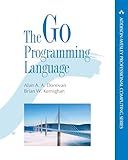
Go Programming Language, The (Addison-Wesley Professional Computing Series)


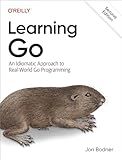
Learning Go: An Idiomatic Approach to Real-World Go Programming


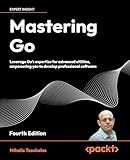
Mastering Go: Leverage Go's expertise for advanced utilities, empowering you to develop professional software


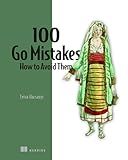
100 Go Mistakes and How to Avoid Them


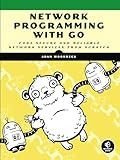
Network Programming with Go: Code Secure and Reliable Network Services from Scratch


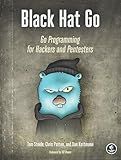
Black Hat Go: Go Programming For Hackers and Pentesters
- MASTER GO PROGRAMMING FOR ETHICAL HACKING TECHNIQUES.
- DISCOVER ADVANCED PENTESTING STRATEGIES IN AN EASY-TO-READ FORMAT.
- ACCESSIBLE PAPERBACK EDITION PERFECT FOR ON-THE-GO LEARNING.


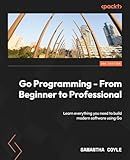
Go Programming - From Beginner to Professional: Learn everything you need to build modern software using Go


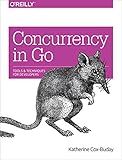
Concurrency in Go: Tools and Techniques for Developers


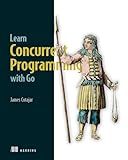
Learn Concurrent Programming with Go


To check if a string variable is empty or contains only whitespaces in Go, you can use the strings.TrimSpace() function. Here's how you can do it:
package main
import ( "fmt" "strings" )
func main() { str := " " // Example string containing only whitespace
// Removing leading and trailing whitespaces
trimmedStr := strings.TrimSpace(str)
if trimmedStr == "" {
fmt.Println("String is empty or contains only whitespaces")
} else {
fmt.Println("String is not empty")
}
}
In this example, the strings.TrimSpace() function is used to remove any leading and trailing whitespaces from the string. Then, we check if the resulting trimmed string is empty or not. If it is empty, it means that the original string was either empty or consisted only of whitespaces.
How to check if a string is empty in Go?
In Go, you can check if a string is empty by comparing it with an empty string literal "". Here's an example:
func isEmptyString(str string) bool { return str == "" }
In this example, the isEmptyString function takes a string as input and compares it with an empty string "". If they are equal, it means the string is empty and the function returns true; otherwise, it returns false.
Here's how you can use this function to check if a string is empty:
str := "Hello, World!" if isEmptyString(str) { fmt.Println("The string is empty") } else { fmt.Println("The string is not empty") }
In this example, the string str is not empty, so it will print "The string is not empty". If you had an empty string, it would print "The string is empty".
How can I validate whether a string is null or just containing spaces in Go?
In Go, you can use the strings.TrimSpace() function to remove leading and trailing spaces from a string. After trimming the spaces, you can check the length of the resulting string to determine if it is empty or not.
Here's an example function that validates whether a string is null or just containing spaces:
package main
import ( "fmt" "strings" )
func validateString(input string) bool { // Remove leading and trailing spaces trimmed := strings.TrimSpace(input)
// Check if the resulting string is empty
if len(trimmed) == 0 {
return true // Null or containing only spaces
}
return false // Not null or only spaces
}
func main() { str1 := "" // Null string str2 := " " // String containing only spaces str3 := " example " // String with value and spaces
fmt.Println(validateString(str1)) // true
fmt.Println(validateString(str2)) // true
fmt.Println(validateString(str3)) // false
}
In the validateString() function, the strings.TrimSpace() function is used to remove leading and trailing spaces from the input string. Then, the length of the resulting string (trimmed) is checked using len(trimmed). If the length is 0, the original string is either null or contains only spaces, so it returns true. Otherwise, if the length is greater than 0, it means the original string has a non-space value, and it returns false.
How to determine if a string has no content or is just whitespace in Go?
In Go, you can use the strings.TrimSpace() function to determine if a string has no content or is just whitespace. This function removes leading and trailing whitespace characters from the string and returns the resulting string.
Here's an example:
package main
import ( "fmt" "strings" )
func main() { str1 := " " // string with only whitespace str2 := " hello world " // string with content and whitespace str3 := "hello" // string with content, no whitespace
// check if str1 has no content or is just whitespace
if strings.TrimSpace(str1) == "" {
fmt.Println("str1 has no content or is just whitespace")
} else {
fmt.Println("str1 has content")
}
// check if str2 has no content or is just whitespace
if strings.TrimSpace(str2) == "" {
fmt.Println("str2 has no content or is just whitespace")
} else {
fmt.Println("str2 has content")
}
// check if str3 has no content or is just whitespace
if strings.TrimSpace(str3) == "" {
fmt.Println("str3 has no content or is just whitespace")
} else {
fmt.Println("str3 has content")
}
}
Output:
str1 has no content or is just whitespace str2 has content str3 has content
In this example, strings.TrimSpace() is used to remove the leading and trailing whitespace characters from the strings. If the resulting string is empty, it means that the original string had no content or was just whitespace.
How to test if a string is nil in Go?
In Go, you can test if a string is nil by comparing it with an empty string "" or a nil value. Here's an example:
package main
import "fmt"
func main() { var strPtr *string str := "Hello, World!"
if str == "" {
fmt.Println("String is empty")
} else {
fmt.Println("String is not empty")
}
if strPtr == nil {
fmt.Println("String pointer is nil")
} else {
fmt.Println("String pointer is not nil")
}
}
This example demonstrates testing both a string variable and a string pointer. If the string variable str contains an empty string "", it means the string is empty. Similarly, if the string pointer strPtr is nil, it means the string pointer is nil.
How can I validate whether a string is null, empty, or just containing spaces in Go?
In Go, you can validate whether a string variable is null, empty, or contains only spaces by using conditional statements and the "strings" package.
Here's an example code snippet that demonstrates the validation:
package main
import ( "fmt" "strings" )
func main() { str := " " // Assign the string variable to be validated
if str == "" {
fmt.Println("String is empty")
} else if len(strings.TrimSpace(str)) == 0 {
fmt.Println("String contains only spaces")
} else {
fmt.Println("String is neither null, empty, nor contains only spaces")
}
}
In this code, we use the if statement with multiple conditions to validate the string.
- If the string is empty (length = 0), it means there are no characters present, and we print "String is empty".
- If the string contains only spaces, we use the strings.TrimSpace function to remove leading and trailing spaces from the string. Then, we check if the length of the trimmed string is zero. If it is, that means it contained only spaces, and we print "String contains only spaces".
- If none of the above conditions match, we assume that the string is not null, empty nor containing only spaces, and we print "String is neither null, empty, nor contains only spaces".
Remember to import the "fmt" and "strings" packages at the beginning of your code.
How can I test if a string variable is null or contains only whitespace characters in Go?
In Go, you can use the strings package to check if a string variable is null or contains only whitespace characters. Here is an example code snippet on how to do it:
package main
import ( "fmt" "strings" )
func isEmptyOrWhitespace(str string) bool { // Check if the string is empty if len(str) == 0 { return true }
// Check if the string contains only whitespace characters
trimmedStr := strings.TrimSpace(str)
if len(trimmedStr) == 0 {
return true
}
return false
}
func main() { str1 := "" // returns true as the string is empty fmt.Println(isEmptyOrWhitespace(str1))
str2 := " "
// returns true as the string contains only whitespace characters
fmt.Println(isEmptyOrWhitespace(str2))
str3 := " Hello World! "
// returns false as the string has non-whitespace characters
fmt.Println(isEmptyOrWhitespace(str3))
}
This code defines a isEmptyOrWhitespace function that takes a string as input and checks if it is empty or contains only whitespace characters. It first checks if the string is empty by comparing its length to zero. If not empty, it then uses strings.TrimSpace to remove leading and trailing whitespace characters and compares the length of the trimmed string to zero. If the length is zero, it means the original string contains only whitespace characters.
What is the preferred method to check if a string is null, empty, or consists solely of whitespace in Go?
In Go, the preferred method to check if a string is null, empty, or consists solely of whitespace is by using the strings.TrimSpace() function in combination with an equality check. Here's an example:
import "strings"
func isStringEmptyOrWhitespace(str string) bool { trimmedStr := strings.TrimSpace(str) return len(trimmedStr) == 0 }
In the code above, the strings.TrimSpace() function is used to remove leading and trailing whitespace from the string. If the resulting trimmed string has a length of 0, it means that the original string was either null, empty, or consisted solely of whitespace.
You can use this function as follows:
str1 := "Hello, World!" str2 := " " str3 := "" str4 := nil
fmt.Println(isStringEmptyOrWhitespace(str1)) // false fmt.Println(isStringEmptyOrWhitespace(str2)) // true fmt.Println(isStringEmptyOrWhitespace(str3)) // true fmt.Println(isStringEmptyOrWhitespace(str4)) // true
In this example, isStringEmptyOrWhitespace() is called with different strings, including one that is nil. The function correctly identifies whether the strings are empty, null, or have only whitespace.
